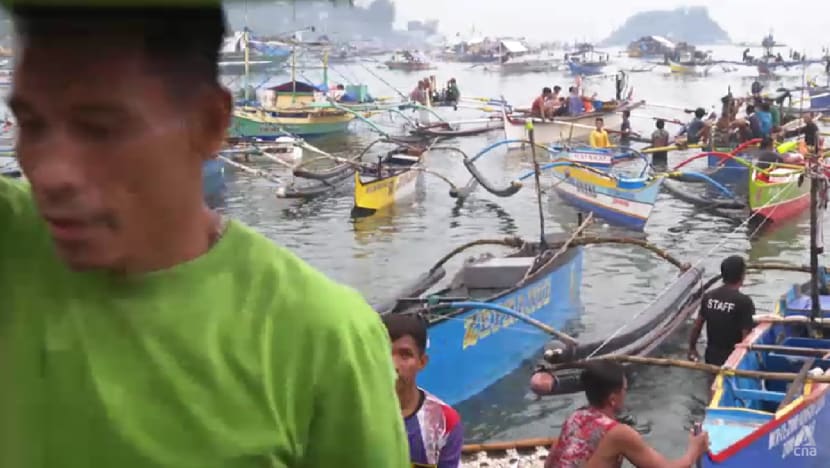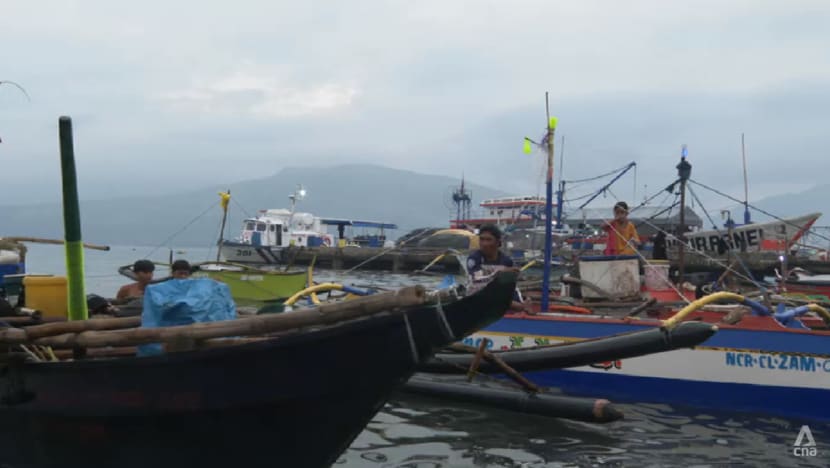Wary Filipino fishermen continue to fish in disputed waters, despite China’s maritime detention rule
The law authorises the Chinese coast guard to detain foreign ships and individuals if it suspects them of “trespassing” into its so-called territorial waters.

Fisherfolk in the Philippines have continued to fish near disputed waters in the South China Sea, despite China's tough new maritime patrol regulations.

This audio is generated by an AI tool.
SUBIC, Philippines: Fisherfolk in the Philippines have continued to fish in disputed waters in the South China Sea, despite China's tough new maritime patrol regulations.
The law, which was implemented a month ago, authorises the Chinese coast guard to detain foreign ships and individuals if it suspects them of “trespassing” its so-called territorial waters.
The strategic waterway has been at the centre of territorial disputes, and China has backed its sweeping claims with naval patrols.
RUN-INS WITH CHINESE COAST GUARD
At the disputed Scarborough Shoal in the South China Sea, some Filipino fishermen – including Mr Freddie Legaspi – have continued fishing there despite China’s new regulation threatening to detain maritime trespassers.
Both the Philippines and China lay claim to Scarborough Shoal, a chain of reefs and rocks famed for its rich waters and marine resources.
A landmark 2016 ruling on the South China Sea by an arbitral tribunal convened under the auspices of the Permanent Court of Arbitration ruled that China's blockade of the shoal violated international law. The court noted that the area was a traditional fishing ground for several countries.
But China has ignored the judgement.
"Sometimes, when we are near Scarborough, we are shooed away by the China coast guard, so we are forced to travel further,” Mr Legaspi told CNA.
“We're somewhat worried now because of China's new trespass rule. But our fish aggregating device is near Scarborough, so we need to go there.”
Such a device, which is used to attract fish, can cost at least US$1,300. They usually consist of buoys or floats tethered to the ocean floor.
It is considered a steep investment for local fisherfolk and boat owners, who refuse to abandon such devices out at sea despite possible run-ins with China’s coast guard.
In late June, the engine on the boat that Mr Legaspi was on exploded 17 nautical miles southwest of Scarborough. He suffered second-degree burns, but had to wait two hours before he was rescued.
The Philippine coast guard has accused China's coast guard of initially blocking its rescue mission that was heading to help the crew.
Mr Legaspi's wife, Laurence, is worried about the medical costs for his burn injuries.
“It's better if the government has funds for accidents at sea faced by fisherfolk,” she said.
“Many of us rely on fishing as our main source of living. I hope the government continues to patrol Scarborough.”
Listen to the CNA Correspondent podcast:

CHINA IGNORES INTERNATIONAL RULING
Scarborough Shoal's inner lagoon has been effectively controlled by China since 2012, despite the 2016 arbitral ruling which was largely in favour of the Philippines.
The international ruling, which China continues to reject, also declared that certain areas of the sea - including the Second Thomas Shoal and Mischief Reef - are within the exclusive economic zone and continental shelf of the Philippines.
Foreign policy and security analyst Lucio Pitlo III told CNA the Philippines' recent submission to the United Nations for its extended continental shelf is another legal tool to compel China to align its claims with the UN Convention on the Law of the Sea (UNCLOS).
“The Philippines filed this (extended continental shelf) claim unilaterally. So for Vietnam and Malaysia to protest is natural,” said the president of the Philippine Association for Chinese Studies.
He added, however, that if the three nations try to address the overlapping claims, there is room for them “to actually realise an (extended continental shelf) negotiation for the three states that is within UNCLOS, and this will put China in isolation”.
















